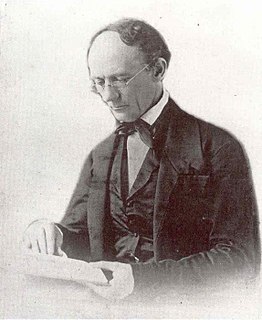A Quote by Christopher Hitchens
Religion attacks us in our deepest integrity by saying we wouldn't be able to make a moral decision without it.
Related Quotes
[Religion] attacks us in our deepest integrity - the core of our self-respect. Religion says that we would not know right from wrong, we would not know an evil, wicked act from a decent human act without divine permission, without divine authority or without, even worse, either the fear of a divine punishment or the hope of a divine reward. It strips us of the right to make our own determination, as all humans always have, about what is and what is not a right human action.
Instead of loving a God, we love each other. Instead of the religion of the sky-the religion of this world-the religion of the family-the love of husband for wife, of wife for husband-the love of all for children. So that now the real religion is: Let us live for each other; let us live for this world without regard for the past and without fear for the future. Let us use our faculties and our powers for the benefit of ourselves and others, knowing that if there be another world, the same philosophy that gives us joy here will make us happy there.
Just as the commander of an army pitches his camp, studies the strength and defenses of a fortress, and then attacks it on its weakest side, in like manner, the enemy of our human nature studies from all sides our theological, cardinal, and moral virtues. Wherever he finds us weakest and most in need regarding our eternal salvation, he attacks and tries to take us by storm.
God doesn't help. I think that's a knockdown argument. I think that it really shows that whatever moral knowledge we have and whatever moral progress we make in our knowledge or whatever progress we make in our moral knowledge is not coming really from religion. It's coming from the very hard work really of moral philosophy, of trying to ground our moral reasonings.
We are nearly always longing for an easy religion, easy to understand and easy to follow; a religion with no mystery, no insoluble problems,no snags; a religion that would allow us to escape from our miserable human condition; a religion in which contact with God spares us all strife, all uncertainty,all suffering and all doubt; in short, a religion without a cross
Intrinsic security doesn't come from what other people think of us or how they treat us. It doesn't come from our circumstance or out position. It comes from within. It comes from accurate paradigms and correct principles deep in our own mind and heart. It comes from inside-out congruence, from living a life of integrity in which our daily habits reflect our deepest values.
What our view of the effectiveness of religion in history does at once make evident as to its nature is--first, its necessary distinction; second, its necessary supremacy. These characters though external have been so essential to its fruitfulness, as to justify the statement that without them religion is not religion. A merged religion and a negligible or subordinate religion are no religion.
The Christian religion is the religion of our country. From it are derived our nation, on the character of God, on the great moral Governor of the universe. On its doctrines are founded the peculiarities of our free Institutions. From no source has this author drawn more conspicuously than from the sacred Scriptures. From all these extracts from the Bible, I make no apology.
The human longings that are deep inside of us never go away. They exist across cultures; they exist throughout life. When people were first made, our deepest longing was to know and be known. And after the Fall, when we all got weird, it's still our deepest longing - but it's now also our deepest fear.
Does history warrant the conclusion that religion is necessary to morality - that a natural ethic is too weak to withstand the savagery that lurks under civilization and emerges in our dreams, crimes and wars? ... There is no significant example in history, before our time, of a society successfully maintaining moral life without the aid of religion.


































